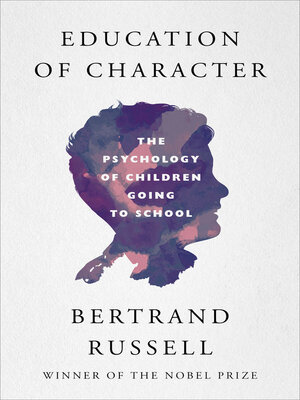
Sign up to save your library
With an OverDrive account, you can save your favorite libraries for at-a-glance information about availability. Find out more about OverDrive accounts.
Find this title in Libby, the library reading app by OverDrive.



Search for a digital library with this title
Title found at these libraries:
| Library Name | Distance |
|---|---|
| Loading... |
The Nobel Prize winner explores the role of early childhood education in building personal character.
In Education of Character, great twentieth-century philosopher Bertrand Russell goes beyond math or history and into the larger purposes of education. What do we want our children to be like as people? What kind of future community do we want to build? And what approaches are most likely to achieve the results we want?
Taking the discoveries of modern psychology into account, Russell notes that habits of mind are formed earlier than we may realize and represent a crucial part of children’s ability to cope successfully with challenges as they grow older. Beginning with the very first year of life and giving consideration to both home and classroom, Russell discusses such topics as fear, play, selfishness, sympathy, and truthfulness—offering parents and other caregivers a set of guiding principles that can help them develop virtue and good character in youngsters.
In Education of Character, great twentieth-century philosopher Bertrand Russell goes beyond math or history and into the larger purposes of education. What do we want our children to be like as people? What kind of future community do we want to build? And what approaches are most likely to achieve the results we want?
Taking the discoveries of modern psychology into account, Russell notes that habits of mind are formed earlier than we may realize and represent a crucial part of children’s ability to cope successfully with challenges as they grow older. Beginning with the very first year of life and giving consideration to both home and classroom, Russell discusses such topics as fear, play, selfishness, sympathy, and truthfulness—offering parents and other caregivers a set of guiding principles that can help them develop virtue and good character in youngsters.







